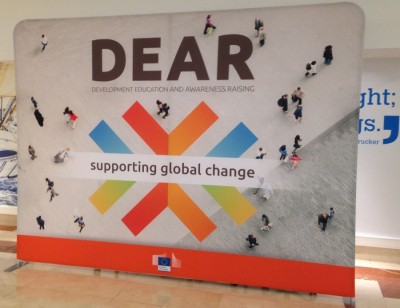News


CATEGORY: Socioeconomic development
LOCATION: Western Balkans, Turkey
START/END: 2018-2021
CLIENT: EC-DG NEAR
ORIGIN OF FUNDING: European Commission
PARTNERS: GDSI Limited (Ireland)
PROJECT VALUE: 4,679,500.00
LDK’s BUDGET SHARE: 30%
STAFF PROVIDED: 2

Type of Services
The Consultant provides services in the following six (6) Result Areas (RA):
RA 1: Further Development of CSOs’ Institutional and Organisational Capacity
- Carry out a thorough needs assessment of CSOs organisation, operational and sectorial capacity
- Develop a comprehensive programme of organisational and operational capacity building of CSOs
- Organise regular varied strategic and organizational development activities
- Improve organisational capacity of regional networks and CSF regional funded projects
- Develop CSOs’ abilities to provide technical thematic input to sectoral policies
- Enhance CSOs’ capacity in the area of gender mainstreaming
- Resolve ad hoc problems facing CSOs through provision of assistance and advice – help-desk function
RA 2: Enhancement of Enabling Environment for Civil Society Development
- Ensure Citizens and CSOs are actively consulted and involved in processes related to the enabling environment and EU pre-accession at regional and national level
- Establish functional links and coordination mechanisms with the national Resource Centres and national Technical Assistance to Government offices for civil society
- Facilitate the co-operation between civil society and the government in the absence of national TA directed at capacity of Government bodies TACSO 3
- Set up advisory bodies to steer TACSO 3 and consult the proposed services with main relevant stakeholders
- Transfer successful practices of CS – government co-operation at national level to the local level and vice-versa
RA 3: Effective communication and visibility of civil society activities in the region
- Improve the public awareness of civil society activities and public image of CSOs
- Strengthen the co-operation and networking among targeted CSOs and between CSOs, the media and other stakeholders
- Reinforce mutual learning and synergies between CSOs by means of exchange of information and experiences
- Make TACSO web-portal fully operational in collecting and disseminating civil society relevant information from different online and offline channels
- Reinforce CSOs’ links with their constituencies/ communities through improved communication capacities
RA 4: Monitor, Consult and Document the Progress in Relation to Civil Society and Media Guidelines
- Update and implement the monitoring framework of the Guidelines for EU support to civil society and media
- Organise annual regional participatory events to discuss the outcome of the monitoring and agree recommendation for policy and assistance
RA 5: Enable Effective Relations between CSOs and EU
- Effectively feed CSO knowledge into the region's EU integration process
- Facilitate and organise CSO consultation processes
- Create and regularly update a database of all (national and regional) CSF funded projects, including those financed through sub-granting
- Set up the system for informing CSOs of relevant EU information related, e.g., to calls for proposals, online consultations, etc.
- Support the annual competition for the Roma Award scheme
RA 6: Effectively design and implement the people to people (P2P) programme and other events in a participatory manner
- Widely consult, define and implement yearly programmes of regional P2P events contributing to exchanges, capacity development and synergies between CSOs
- Organise a total of no less than 42 regional events and 28 national events in different locations in the region and in the EU during the three years
Description
Technical Assistance to Civil Society Organizations in Western Balkans and Turkey is a regional project funded by the European Union (EU) that improves capacities and strengthens the role of the civil society organizations (CSOs) in this region.
The project targets the Western Balkans' countries (Albania, Bosnia and Herzegovina, Kosovo*, North Macedonia, Montenegro and Serbia) and Turkey. Through its activities it enhances the capacity of CSOs to actively take part in the democratic processes and stimulates an enabling environment for civil society and pluralistic media development.
TACSO is a part of the Civil Society Facility (CSF) EU mechanism that provides support to CSOs in enlargement countries. CSOs play an important role for the European Union as they are key actors in supporting their country’s accession process.
The TACSO 3 technical assistance programme has a particular focus on activities where a regional approach and regional coherence offers an added value including: Partnership and network promotion; Sharing of lessons learned and best practices; Development and monitoring of guidelines; Provision of an information repository; Training and training of trainers with a multiplying effect; and others.
Through capitalization of EU efforts to strengthen the capacity of CSOs, TACSO has a key role in creating coherence in supporting civil society development at multiple levels in the region in six main areas:
- CSOs organisational and operational capacity development
- Enabling environment for civil society development
- Communication and visibility of civil society
- Development and monitoring of the civil society and Media Guidelines
- Enabeling effective relations between EU and CSOs Events management, including Design and Implementation of the People to People programme)
TACSO's primary target groups are civil society actors, such as: Non-governmental organisations; Organisations representing national and/or ethnic minorities; Local citizens’ groups and traders’ associations; Cooperatives, Trade unions, Organisations representing economic and social interests; CSOs networks; Resource Centres and training centres for civil society; Consumer organisations; Women’s and youth organisations; Activists; Community based organisation and independent foundations.
Secondary target groups are staff members of stakeholder organisations including central and local governments, media and the private sector where relevant (e.g. social enterprises





